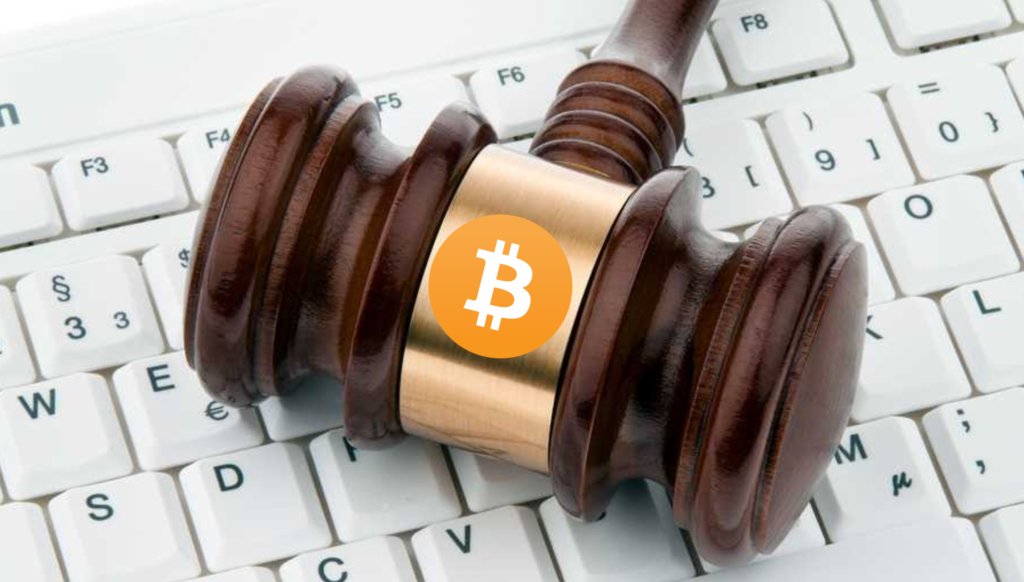
In American legal philosophy, there are several schools of thought regarding judicial and constitutional interpretation. The main arguments revolve around the static or dynamic definition of law as time passes by and sources of those definitions. They are grouped in three main currents: Living Constitution [1], Originalism [2], and Textualism [3].
However, in a context where “software is eating the world” [4], many functions and processes of legal systems, especially contract law, may end up coded in decentralized blockchain systems.
Living Constitution
The Living Constitution line of thought says that judges should interpret the Constitution and statutes as rules and norms that evolve with the passage of time and the progress of culture.
In this interpretation, basic norms and basic rights as life, liberty, property, speech, or contract are subject to change based on new understandings of their meaning, especially as adapted to what they see are the evolving needs of society.
Originalism
Originalism is the idea that the Constitution must be interpreted as it was originally proposed and understood. This current has two sub-trends: Original Intent and Original Meaning.
Original Intent seeks to find out what was the intention of the Constitution’s framers when they debated and wrote it. For this, proponents use historical sources as the framers’ letters, speeches, pamphlets, and newspaper articles, when applicable.
Original Meaning proponents seek to interpret the Constitution not necessarily as what was the farmers’ intent, but as what was its meaning to regular people and citizens in the thirteen colonies at the time of its proposal and ratification. For this, they refer to the writings of lawyers, judges, and politicians of the time, and perhaps contemporary journalists, columnists, and other relevant experts and historical sources, such as contemporary dictionaries, books, and encyclopedias.
Textualism
Textualism is similar to Originalism, but is much more strict as it expects judges to only use the text of the Constitution as it is written with no other external sources of intent or meaning. They expect the literal interpretation and application of its rules and norms.
The reasoning behind this philosophy is that if the text and statutes are interpreted directly from the words and their literal meaning, then the application of the law will be as mechanical as possible, therefore more just and homogeneous in all cases, regardless of culture and time.
Bitcoin Hyper-Textualism
With technologies in the pipeline as Miniscript [5], Taproot [6], Graftroot [7], and the complementary integration of opcodes such as OP_CHECKTEMPLATEVERIFY [8], the Bitcoin blockchain will sooner or later gain much more versatility in terms of programmability.
This means advanced smart contracts [9] will be enabled enhancing the basic structure of Bitcoin transactions, accounts, and balances. These smart contracts will increasingly mediate economic relationships and agreements between businesses, individuals, governments, and organizations on a global scale.
Bitcoin smart contracts will not only operate within trust and legal boundaries, but also across international borders and jurisdictions.
However, once smart contracts are deployed on the blockchain they will be immutable. In other words, in Bitcoin, the code itself will be the law [10]. Therefore, norms and rules will be hyper-textual.
Decentralized software programs differ from traditional contracts in that they are the rules of the agreements, but also their physical execution. This includes the irreversible movement of funds, and, in many cases, the subsequent implementation and execution of code in external systems.
In practice, there will be no space for subjective interpretations, as Bitcoin will execute contract rules in a truly and purely mechanical way.
In a context where Bitcoin will “eat the world of contracts”, parties to contracts will likely have the blockchain as the environment where immutable rules will be executed, and the off-blockchain environment where they will be able to compensate, adjust, or seek equity post facto if they can find ways to make traditional jurisdictions relevant to their dealings.
References
[1] Living Constitution – by Wikipedia: https://en.wikipedia.org/wiki/Living_Constitution
[2] Originalism – by Wikipedia: https://en.wikipedia.org/wiki/Originalism
[3] Textualism – by Wikipedia: https://en.wikipedia.org/wiki/Textualism
[4] Why Software is Eating the World – by Marc Andreessen: https://a16z.com/2011/08/20/why-software-is-eating-the-world/
[5] Miniscript – by Blockstream: http://bitcoin.sipa.be/miniscript/
[6] Taproot – by Aaron Van Wirdum: https://bitcoinmagazine.com/articles/taproot-coming-what-it-and-how-it-will-benefit-bitcoin
[7] Graftroot – by Aaron Van Wirdum: https://bitcoinmagazine.com/articles/graftroot-how-delegating-signatures-allows-near-infinite-spending-variations
[8] OP_CHECKTEMPLATEVERIFY – by Jeremy Rubin: https://github.com/bitcoin/bips/blob/master/bip-0119.mediawiki
[9] Smart Contracts – by Nick Szabo: https://nakamotoinstitute.org/the-idea-of-smart-contracts/
[10] Code Is Law and the Quest for Justice – by Arvicco: https://ethereumclassic.org/blog/2016-09-09-code-is-law
Special thanks to Yaz Khoury for recently bringing to my attention and explaining the latest developments in Bitcoin smart contracts.
Code Is Law